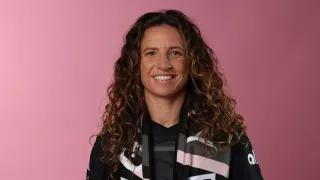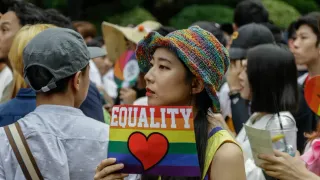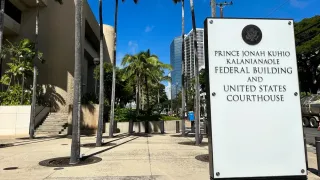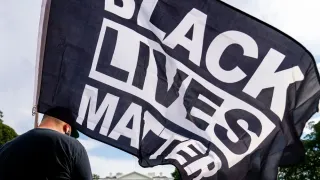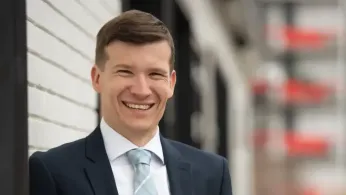
9 hours ago
Calgary Elects First Openly Queer Mayor: Jeromy Farkas Makes History
READ TIME: 3 MIN.
Calgary, Alberta, has made history by electing Jeromy Farkas as the city’s first openly queer mayor, a milestone for LGBTQ+ representation in municipal government . Farkas, who is openly bisexual, emerged victorious in a closely watched race, running on a platform of inclusivity, economic revitalization, and transparent governance. His win signals a shift in civic politics in a province often perceived as conservative, and it stands as a testament to changing attitudes and the increasing visibility of LGBTQ+ leaders in Canada .
Farkas’s political journey is particularly noteworthy because of his background in the Wildrose Party, a conservative movement that has often been at odds with LGBTQ+ rights . Coming up through the ranks of a party that birthed figures like current Premier Danielle Smith, Farkas’s election represents not only personal resilience but also the potential for transformation within political institutions .
Throughout his campaign, Farkas emphasized the importance of representing all Calgarians, explicitly including LGBTQ+ residents in his policy discussions and outreach efforts. He pledged to advance anti-discrimination protections, expand mental health resources, and foster a city environment where marginalized voices are heard and respected . Farkas’s openness about his bisexual identity resonated with many voters who felt seen and validated by his candidacy, especially in a city where queer and trans issues have been politicized in recent years .
Local LGBTQ+ organizations and activists lauded the election result as a win for community visibility and a rebuke to recent waves of anti-LGBTQ+ rhetoric and policy proposals in Alberta and beyond . “Farkas’s victory sends a strong message—that queer people not only belong in public life, but are leading it,” said a spokesperson for Calgary Pride .
The significance of Farkas’s win is amplified by the broader context of Alberta’s political climate. The province has seen contentious debates over gender and sexual diversity in schools, health care access for transgender people, and the visibility of LGBTQ+ people in public life . Right-wing groups have organized high-profile campaigns targeting policies that support queer and trans students, and the Alberta government has faced criticism for rolling back protections in the education system .
Against this backdrop, Farkas’s election is seen by many as a rejection of exclusionary politics and a call for a more inclusive civic future. “We’ve shown that Calgary is ready for a mayor who reflects the diversity of our city and who will fight for every resident,” Farkas said in his victory speech .
Advocates hope that Farkas’s leadership will inspire other LGBTQ+ individuals to pursue public office, further normalizing queer visibility in Canadian politics .
Farkas’s election quickly drew attention from national and international LGBTQ+ media, organizations, and allies. Groups such as Egale Canada and the Canadian Centre for Gender and Sexual Diversity praised the result as a “milestone for representation and hope” .
International outlets, including PinkNews and Out Magazine, covered the story as part of a growing trend of openly LGBTQ+ municipal leaders in North America . In statements, several mayors from other Canadian cities, such as Toronto and Vancouver, congratulated Farkas and highlighted the importance of diverse leadership at the municipal level .
Community members and advocates emphasize that representation alone is not a panacea, but it is a crucial step toward substantive policy change. “Having an openly bisexual mayor is about more than symbolism—it’s about ensuring our voices are part of the decision-making process,” said a spokesperson for the Centre for Sexuality, a Calgary-based advocacy group .
Farkas has publicly committed to supporting local LGBTQ+ organizations, increasing funding for community health initiatives, and working to ensure that city programs are accessible and affirming for transgender people, non-binary people, and other marginalized groups .
In the weeks following the election, Farkas has already begun meeting with advocacy groups to discuss plans for enhancing the city’s Pride celebrations, improving access to gender-affirming care, and strengthening anti-discrimination policies in municipal workplaces .
Despite the celebratory tone of the election, Farkas and his administration face considerable challenges. Calgary, like many cities, is grappling with economic recovery post-pandemic, rising housing costs, and debates over city services . Additionally, Farkas must navigate a city council with a range of political perspectives and address concerns from constituents who may not have supported his candidacy .
LGBTQ+ activists urge continued advocacy to ensure that the progress symbolized by Farkas’s election translates into concrete improvements in safety, health, and opportunity for all queer and trans people in Calgary .
Jeromy Farkas’s historic win is a pivotal moment for Calgary and for LGBTQ+ representation in Canadian politics. As he prepares to take office, community members and allies are watching closely to see how his leadership will shape the city’s future. The hope, echoed by many, is that this victory will mark not just a symbolic change, but a substantive shift toward equity and inclusion for all .
